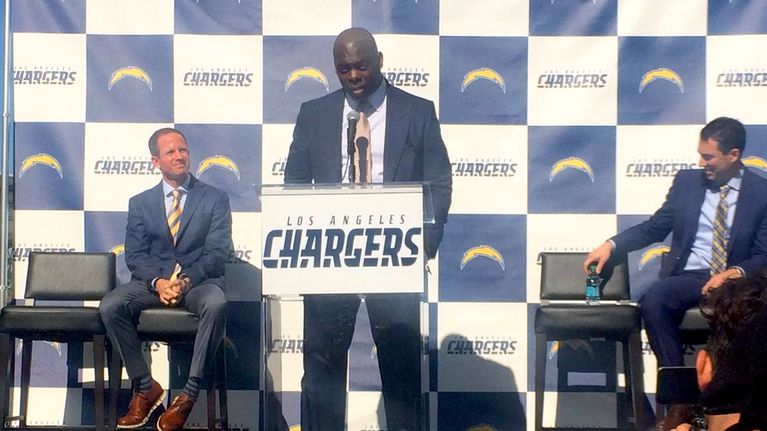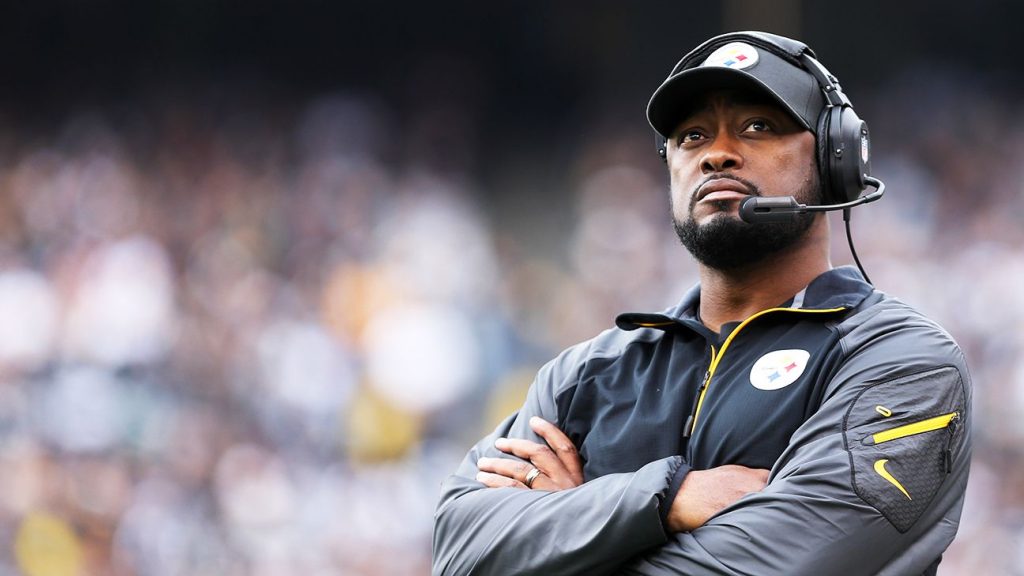Vance Joseph and the State of Black Coaches in the NFL

The Denver Broncos recently hired Vance Joseph to fill their head coaching vacancy. Shortly thereafter, the Los Angeles Chargers named Anthony Lynn their new head coach. Joseph and Lynn are both first-time head coaches. They are also the sixth and seventh black head coaches (out of 32 teams, or roughly 22%) currently employed by the National Football League, a league in which African Americans comprise 70% of its players.
Joseph’s hire is particularly promising for those concerned with the lack of racial diversity among the NFL head coaching ranks. The Broncos position is unique. Joseph takes over a team only a year removed from a Super Bowl victory. Pat Bowlen is a respected owner and John Elway is one of the league’s most highly regarded front office executives. The team still possesses Super Bowl talent and the head coaching job became available only after the team’s previous head coach—Gary Kubiak—retired due to health concerns. As a result, the Denver job was universally regarded as the most desirable opening this offseason. Therefore, while the larger issues regarding the underrepresentation of African Americans among NFL head coaches do not appear to be going anywhere, Joseph’s hiring by one of the NFL’s elite franchises marks an opportunity rarely afforded to deserving black candidates, especially those without previous head coaching experience.
In 2002, civil rights attorneys Cyrus Mehri and Johnnie Cochran released a damning report titled Black Coaches in the National Football League: Superior Performance, Inferior Opportunities, proving that NFL owners and general managers were far more likely to fire black head coaches than white ones, despite the fact that black head coaches’ teams won a significantly higher percentage of their football games. The report also highlighted that in the eighty-one years between 1921 and 2002, the NFL hired a total of eight non-white head coaches (seven between 1979 and 2002, it should be noted). In response, the NFL adopted what became known as the “Rooney Rule,” which requires all NFL teams hiring a head coach to interview at least one candidate of color.

The first years after the rule’s implementation showed signs of success. Between 2002 and 2011, the percentage of non-white coaches rose four-fold from the five years prior to the Rooney Rule. Similarly, whereas between 1997 and 2001 only 4.5% of first-time head coaches hired were racial minorities (1 of 22), that number increased to nearly 27% in the five years from 2007–2011 (7 of 26). Of late, however, the NFL has witnessed a re-whitening of its head-coaching ranks. The percentage of minority coaches hired between 2012 and 2016 fell below 14%, down from 21.2% the previous five years. Additionally, during that same period only one of the twenty-two first-time head coaches hired was black (Todd Bowles in New York). That prompted renewed focus on the Rooney Rule last offseason, resulting in an amendment to the rule. The league now “recommends” but does not require teams to use the Rooney Rule guidelines in hiring coordinators. As noted NFL reporter Mike Florio recently reported, it is unclear whether teams are complying with the league’s recommendation.
Returning to the case of Joseph, consider the black coaches hired prior to him over the last nine years (since the 2008 NFL season)—Mike Singletary, Raheem Morris, Leslie Frazier, Romeo Crennel, Lovie Smith, Hue Jackson, and Todd Bowles. Each of these coaches took over teams with sub .500 records in the year(s) prior to their hire. Singletary took over a team that won seven games prior to his first full season. Morris’s Bucs won only nine in the year before he took over. The Vikings won only six before Frazier’s first full season. The Chiefs won seven the season before hiring Crennel; the Bucs won four before Smith arrived in Tampa. The Browns only won three before Jackson’s hire (Jackson also coached one season in Oakland, taking over an eight-win Raiders team), and the Jets won only four before Bowles took over. In other words, among NFL jobs, none of these coaches were given a “top-tier” job, and not a single one of these teams made the playoffs in the year before these coaches’ first full season.
Take, for example, the Cleveland Browns, the team that Hue Jackson took over last offseason. The Browns have not won more than seven games once in the last nine seasons, and their win total was below six in the other eight. Jackson is the sixth Browns coach over that stretch, and the team has started eighteen different quarterbacks in a league where stability at the quarterback position is widely regarded as a prerequisite for winning. In other words, sure, the hiring of Jackson represents one more African American among the mere thirty-two NFL head coaches, but the Browns job is arguably the least desirable of those positions.
The pattern, then, when it comes to first-time black coaches in the NFL, is to take over bottom-tier franchises with losing records that are historically on the outside looking in come playoffs. These franchises therefore have a lot of turnover when it comes to coaches, meaning that even when deserving black coaches are afforded an opportunity for a head gig, they are unlikely to last through their first contract. Mike Singletary lasted less than three full seasons, Raheem Morris only three, Leslie Frazier less than four, and Romeo Crennel was fired in Kansas City after only one full season.
Vance Joseph takes over one of the most successful franchises over the last six seasons. Before missing the playoffs this season (by a single game), the Broncos won the AFC West division in each of the previous five seasons, posting at least twelve regular season wins in four of those. Additionally, they appeared in two Super Bowls and won the Lombardi Trophy last year. It is not since the Pittsburgh Steelers hired Mike Tomlin, a year removed from their own Super Bowl victory, coming off an eight-win season and the retirement of their future Hall of Fame coach Bill Cowher, that a first-time black coach has been given such an attractive NFL coaching job. And what has Tomlin done with his opportunity in Pittsburgh? He has established himself as one of the most-highly regarded NFL coaches during his ten-year tenure. Tomlin’s Steelers have made the playoffs in seven of his ten seasons, have never won fewer than eight games, won a Super Bowl, appeared in another, and are competing for another in the Divisional Round this Sunday.

Yet, we should be careful not to overstate the progress the Joseph and Lynn hires reflect for racial progress in the NFL. As numerous scholars reveal, the underrepresentation of African Americans in NFL head coaching positions comprises only a portion of the larger issue of racial inequity in the nation’s most popular sport. A recent University of Central Florida study commissioned by the NFL, to offer just one example, reveals that the opportunity gap between black and white coaches is even more acute both for black coaches seeking a second head coaching job and for key assistant positions that comprise a pipeline to coordinator and eventually head coaching opportunities. Moreover, the research of Fitz Hill illuminates that all of these issues are even more dire at the college level. In other words, simplistic measurements of the percentages of black head coaches occlude the deep-rooted racial inequities in the league’s coaching ranks.
Nonetheless, recent history has shown us that not all thirty-two coaching jobs are created equally. Making real progress towards equity in the NFL coaching profession requires, in part, that black coaches acquire good jobs, as with Mike Tomlin in Pittsburgh, rather than occasional rides on the coaching carousel of the league’s middling franchises. Mike Tomlin should be viewed as a model for the league’s racial diversity efforts. While Anthony Lynn’s hiring in Los Angeles is typical among the handful of opportunities given black coaches in recent years, Vance Joseph’s job in Denver is the best one afforded a black coach in the NFL in a decade.
Justin Gomer is an Assistant Professor of American Studies at California State University, Long Beach. His work centers on race and representation in the post-civil rights era. He is currently writing a book entitled, Colorblindness, A Life: The Political and Cultural Biography of an Ideology. Follow him on Twitter @ProfessorGomer.
Copyright © AAIHS. May not be reprinted without permission.